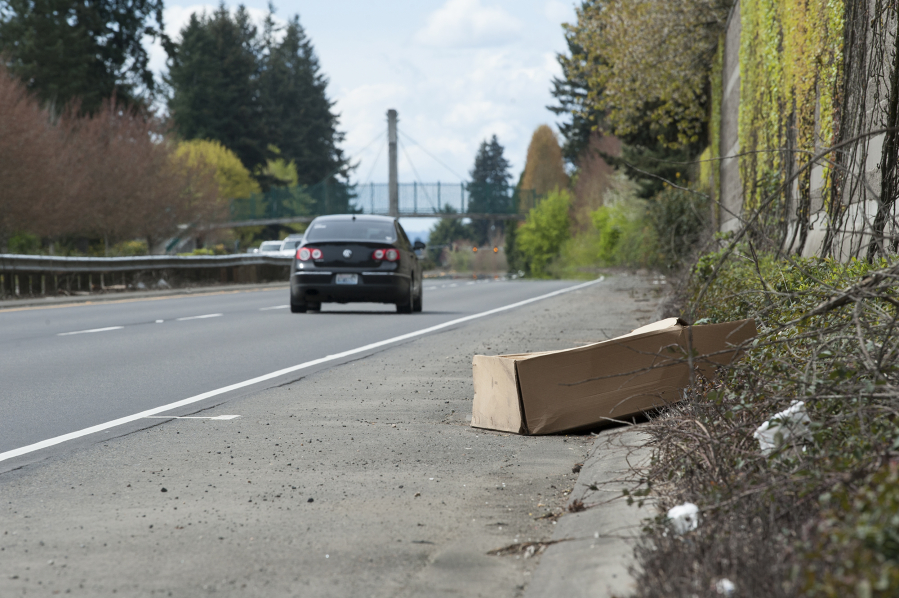Tacoma — One of the biggest issues plaguing Washington state is the large amounts of litter and debris building up on the side of the highways. The Evergreen State is known for its greenery and beautiful landscapes, but to residents, it is also known for its roadside litter.
Washington roadways and interchanges see more than 26 million pounds of litter tossed out or blown onto them every year, according to the Washington State Department of Ecology.
Litter found on the side of Washington roads
- Unsecured loads: You’ve probably driven on the interstate plenty of times and noticed some odd things laying on the shoulder of the roadway and thought “how did that get there?” or “how did someone lose that?” The easiest and most common answer to those questions is that someone more than likely did not secure their load properly.
Unsecured loads made up 39 percent of roadside litter in 2022, according to the Washington State Department of Ecology.
What is considered unsecured loads?
Unsecured loads are defined as loads that contain materials that can fall off of a moving vehicle. This includes, plastic wrap, cardboard boxes, wood products and bulky items such as mattresses, according to Ecology. It is illegal to drive with an unsecured load in Washington and can result in misdemeanor offense and a fine of up to $5,000.
What to do if you lose a load
If you lose a load on the interstate even though you made a good attempt to secure it before driving, it is advised that you call 9-1-1 in order to retrieve the load and keep from causing an accident.
Depending on the officer and the circumstances of why you lost your load, there’s a good chance that you will not be fined if you call in to report it.
“If you lose something, unless it’s pretty obvious that you were negligent and that’s why it fell out of the vehicle like, you’ve got a stack full of pallets and half of them fell out in the roadway because none of them were strapped down, I would probably give you a ticket,” Washington State Patrol Trooper John Datillo said in an interview. “If it’s a case where you made an attempt or it seemed to be safe, and then it was some unforeseen circumstance that caused it to come loose or come off your vehicle, mostly we just appreciate that you stayed and that you called so that we know about it so we can prevent the further incident.”
10 weirdest things found on side of the highway
1. Shell casings — lots of them
2. Recliner chairs/ couches
3. Refrigerators
4. Ladders
5. Urine filled bottles
6. Mattresses
7. Trash cans
8. TVs
9. Car bumpers
10. Barbecue grills
Most littered items on highways
An Ecology litter study broke down the amount of litter and types of litter most commonly found in the Evergreen State.
Most littered items by pound:
Glass beer bottles
Construction/demolition debris
Cardboard boxes
Most littered items by piece:
Cigarette butts
Construction/ demolition debris
Food wrappers and snack bags
Where does the trash go?
The WSP, Ecology and WSDOT all work together to gather litter and to move the potentially hazardous debris to the shoulder of the roadway. Ecology has several litter programs around the state that are tasked with gathering the litter from the highways into bags, but WSDOT is in charge of disposing of any litter or debris.
The debris is disposed of at a landfill, according to an email from WSDOT Olympic Region communications manager, Cara Mitchell.




